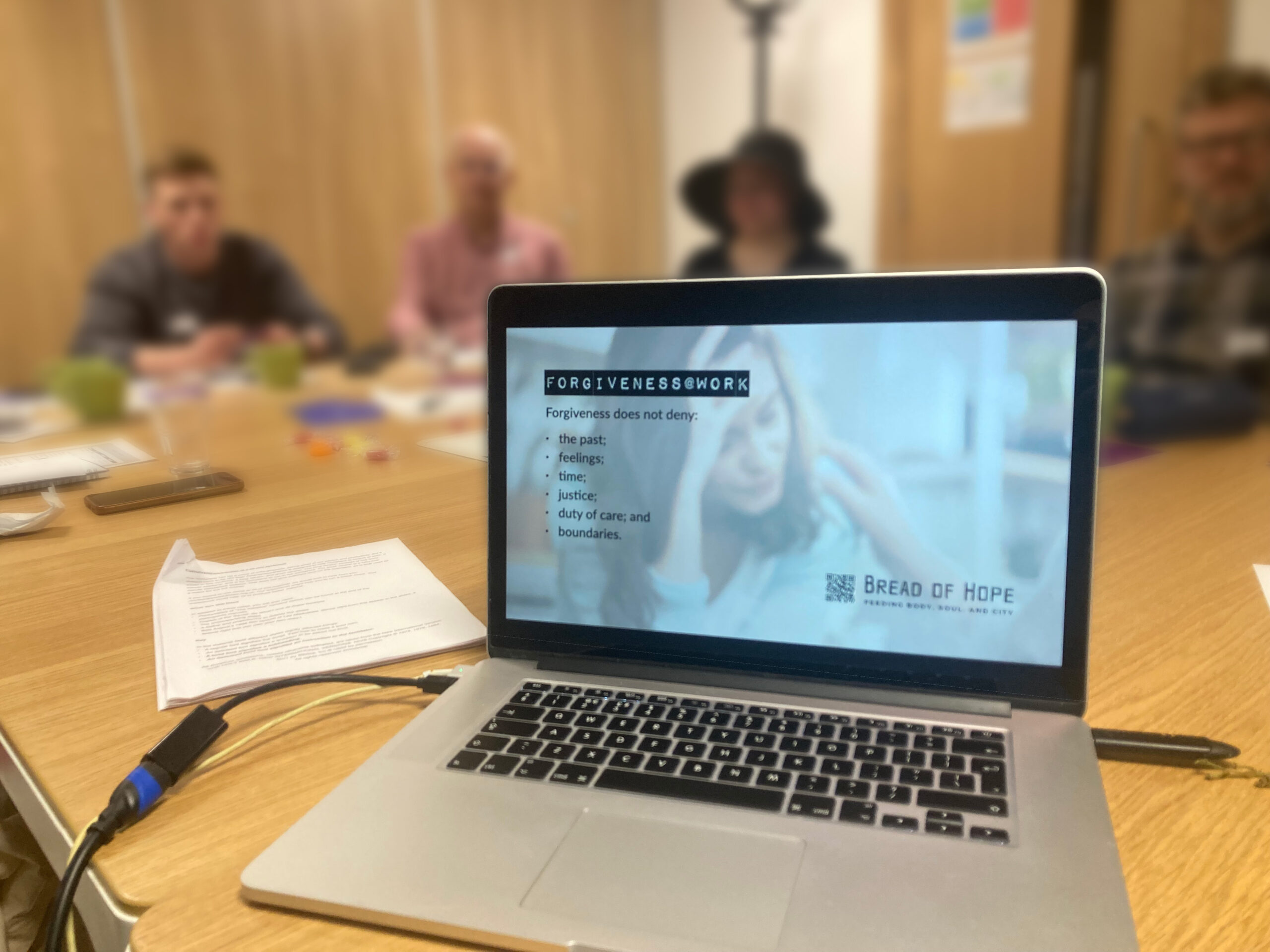

“The video clips were a good way of demonstrating the advantages of forgiveness. The frequent recap of the key points solidified those points in the memory. Jon has a good clear teaching style. I don’t really have any suggestions here as the course was informative, interactive and well-organised – nothing to improve in my view!” [from a City Law Firm]

The last (public) Forgiveness@Work seminar was:
Forgiveness@Work is derived from The Relationships Course, which was delivered to respective departments within Schroders and Man Group during the noughties. (At one point it also served as a module on the Birmingham Business School MBA syllabus.)
In addition to its grounding in the psychology and theology of forgiveness, Forgiveness@Work also provides opportunities for participants to engage with the Bible.
“[The seminar] proved to be very popular at BP’s Sunbury campus.”
“[The seminar] proved to be very popular at BP’s Sunbury campus. A number of people attending the course were having issues with relationships at work and needed the help to address unforgiveness. The material was really thought-provoking and inspired us to a new approach to forgiveness – to be a witness (to the Good News) and to invite change in ourselves and others. It involved interaction but also gave individuals a chance to work through issues in private.”
Despite its heritage in the workplace, Forgiveness@Work also has relevance to life outside of work. And despite its heritage in the Christian Faith, Forgiveness@Work is also accessible to those with no faith at all.
Forgiveness is not making someone pay when we are wronged. It cancels the debt they owe us to right that wrong.
Forgiveness is not making someone pay when we are wronged. It cancels the debt they owe us to right that wrong. 1 Forgiveness also has multiple dimensions. 2 Whereas forgiveness might remain something private – something that we do ‘under our skin’, forgiveness can also be communicated. (But it can take wisdom to know if, when and how.) So forgiveness has both ‘intra-’ and ‘inter-personal’ dimensions.
When communicated, forgiveness helps people to be worthy by inviting change. We can invite worthiness in our relationships. In this way, we can offer up or dedicate our relationships to God. This fulfils our ‘priestly’ calling to perfect creation. Sometimes this is called ‘the creation mandate’. We are called to add worth to the world in innumerable ways. We can do so by turning one thing into another: grapes into wine; grain into bread; wilderness into garden; 3 finances into spreadsheets; even grief into growth. We can also turn less than worthy relationships into something better when we invite worthiness.
If this is what forgiveness is, then there are many things that forgiveness is not. The things that forgiveness is not serve to structure the seminar.
This seminar is facilitated by Jon, who has a certificate in counselling and a background in marketing. It consists of 5 x 30-minute sessions (which make it ideal for Christian Workplace Groups to run over lunchtime).